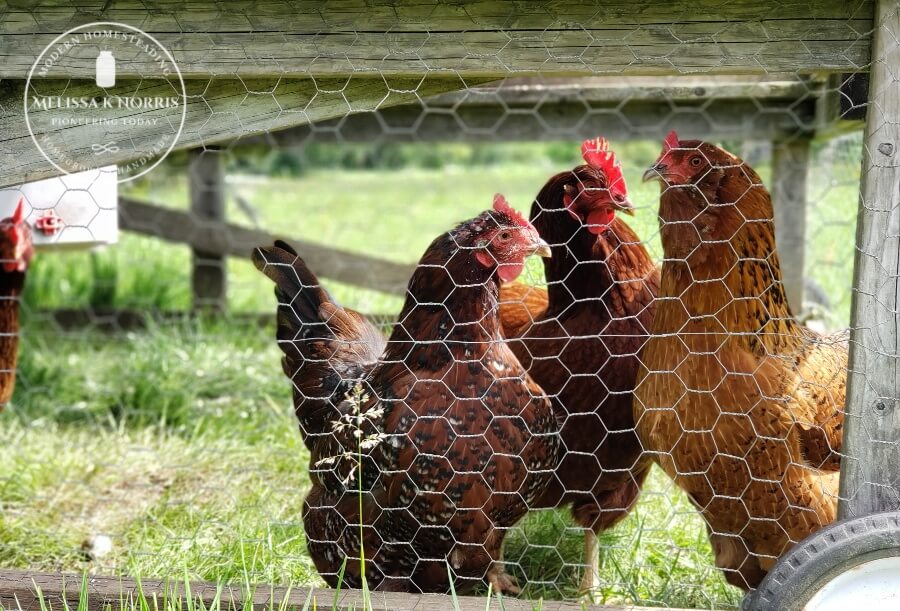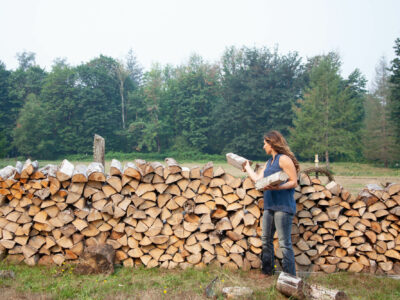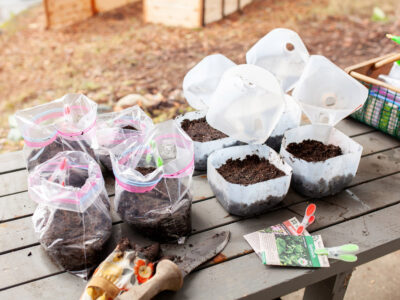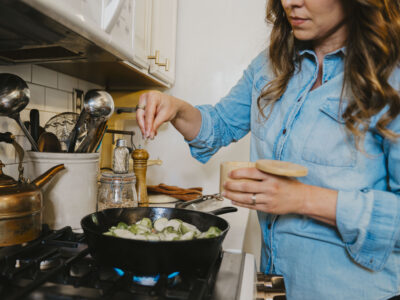Join me in this podcast and blog post with special guest Joel Salatin as we discuss mRNA in livestock and how that translates into our food supply.
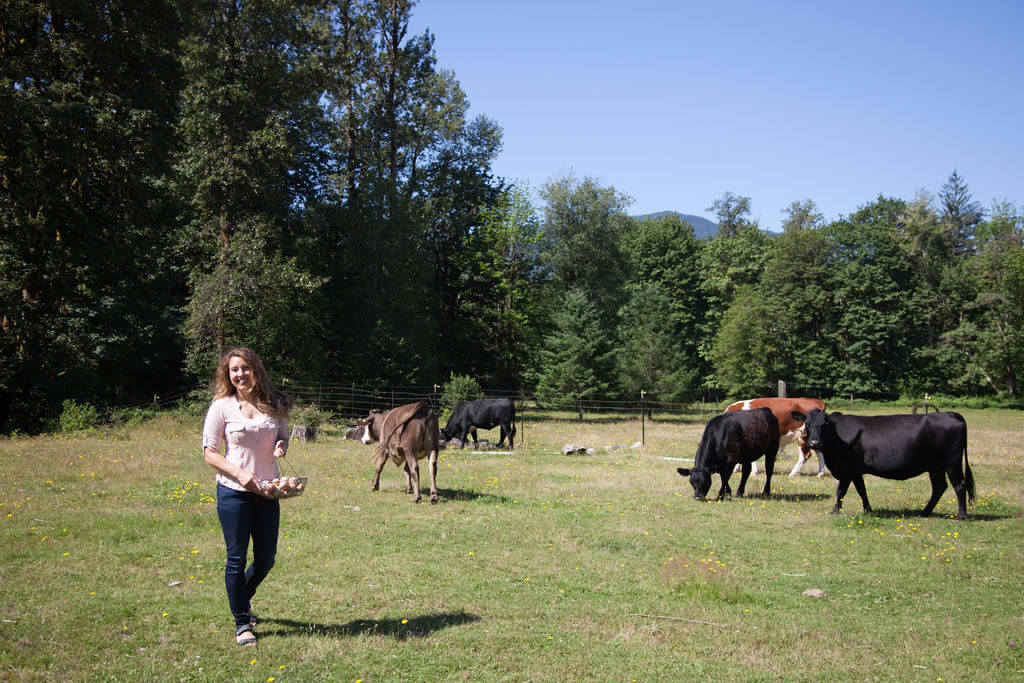
I’ve had Joel on the podcast before where we discussed how to maximize your homestead for profit and production. Anytime I get to sit down and chat with Joel I learn something new and have a great take-away to implement on my own homestead. Today’s episode is no different!
Table of Contents[Hide][Show]
About Joel Salatin
This is Pioneering Today Podcast episode #391 with Joel Salatin. Joel is the grandfather of the modern homesteading movement, especially in regard to regenerative agriculture and spreading the word even beyond the homesteading community for this way of living.
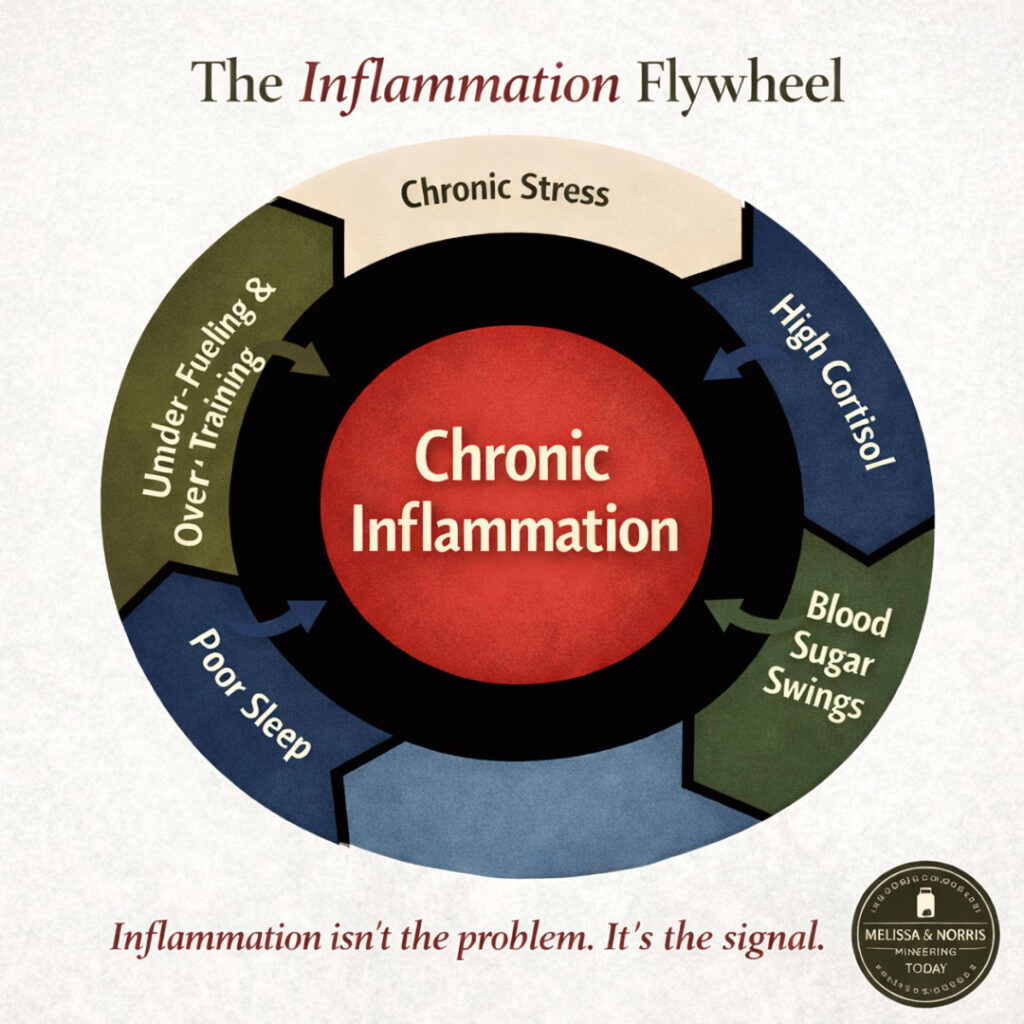
The Hidden Cycle Keeping You Inflamed
If you’ve been feeling puffy, tired, achy, or wired-but-tired, this two-page guide will help you understand what may be happening behind the scenes — even if you’re eating “healthy.”
Download the Inflammation Flywheel Guide and learn:
- Where to start so you don’t feel overwhelmed
- The 5 most common drivers that keep inflammation switched on
- Why blood sugar swings, stress, and poor sleep feed each other
This also includes the health of our livestock and how their living conditions are crucial to overall health and homestead management.
What is mRNA?
Most of us have never heard of mRNA prior to 2020. So what is it?
The truth is research is still being done on mRNA and what it is, how it’s used and what it does is ever evolving. A quick definition from genome.gov, “Messenger RNA (abbreviated mRNA) is a type of single-stranded RNA involved in protein synthesis. mRNA is made from a DNA template during the process of transcription. The role of mRNA is to carry protein information from the DNA in a cell’s nucleus to the cell’s cytoplasm (watery interior), where the protein-making machinery reads the mRNA sequence and translates each three-base codon into its corresponding amino acid in a growing protein chain.”
As it turns out, the livestock industry has been using this “gene therapy” vaccine for a long time.
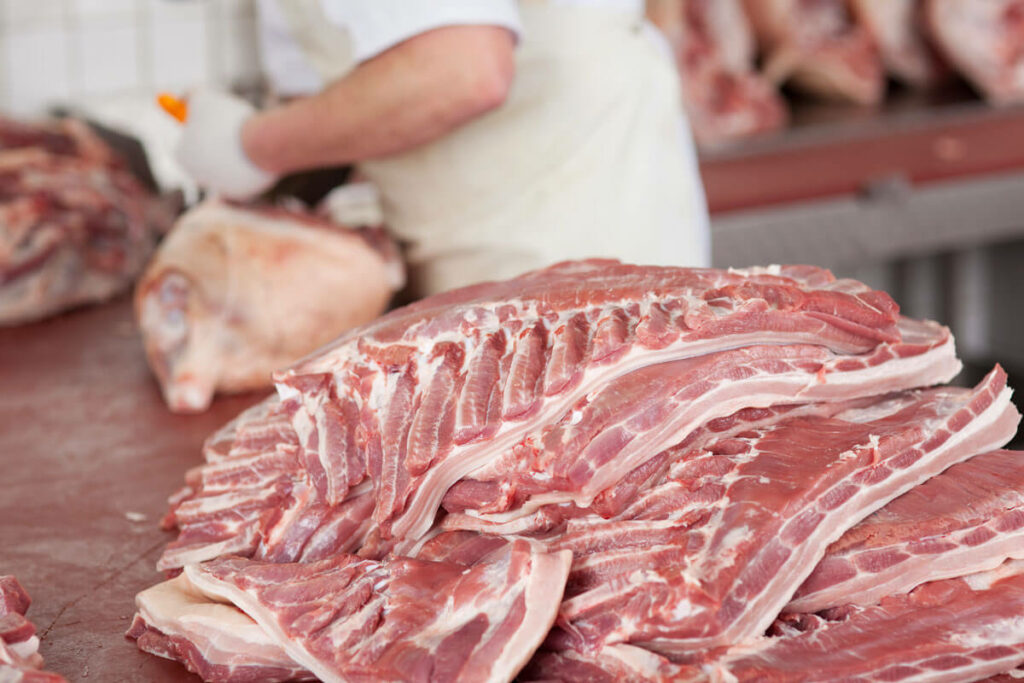
mRNA in Food
One of the major concerns about mRNA in livestock is that it transfers genetically and meat labeling laws don’t require it to be labeled.
That means you can go to a restaurant where they’re serving meat that’s been given mRNA and they don’t have to disclose this information. So for those of us who have avoided getting the COVID vaccine, we now could be getting mRNA through our food choices.
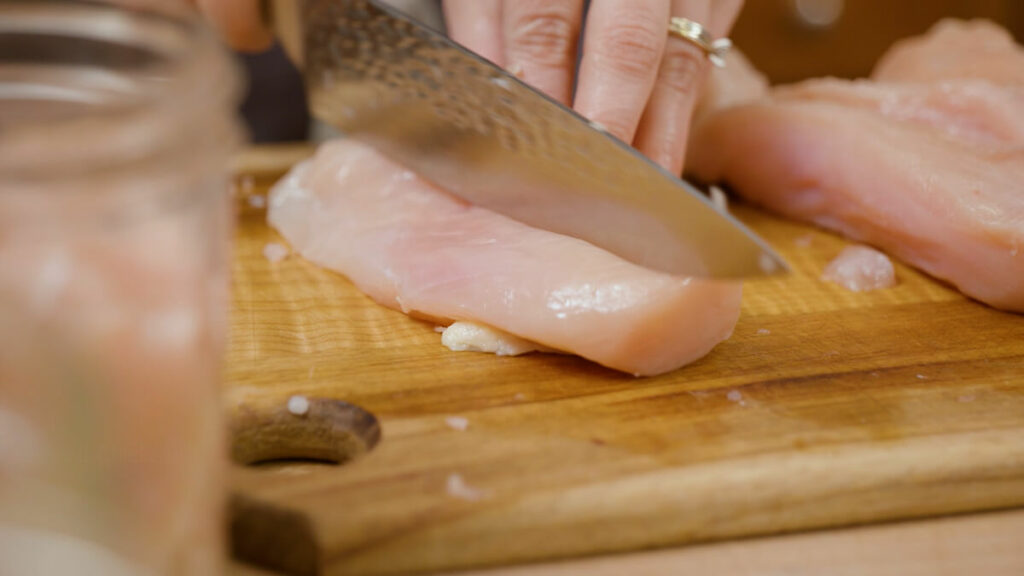
“Antibiotic-Free” Meat
There’s now a big push from consumers to purchase meat that’s antibiotic-free. Large companies and farms know this, so they’ve been actively searching for alternatives.
Because of the living conditions of large CAFOs (Concentrated Animal Feeding Operations), raising healthy animals is an impossibility. Therefore, these animals are routinely given antibiotics to keep them “healthy.”
CAFOs have been looking for ways around this for a long time, but what they’re not willing to do is adopt the healthy way of raising animals which is on a smaller scale, or where each animal has adequate, clean living space.
With the introduction of mRNA (for poultry, it was introduced in 2015, for pork in 2018 and for cattle in 2021), these companies can now give their livestock the mRNA vaccine and label their food “antibiotic-free,” but now they’re using the mRNA vaccine. So though they can “truthfully” say their animals have not been given antibiotics, they have been given something.
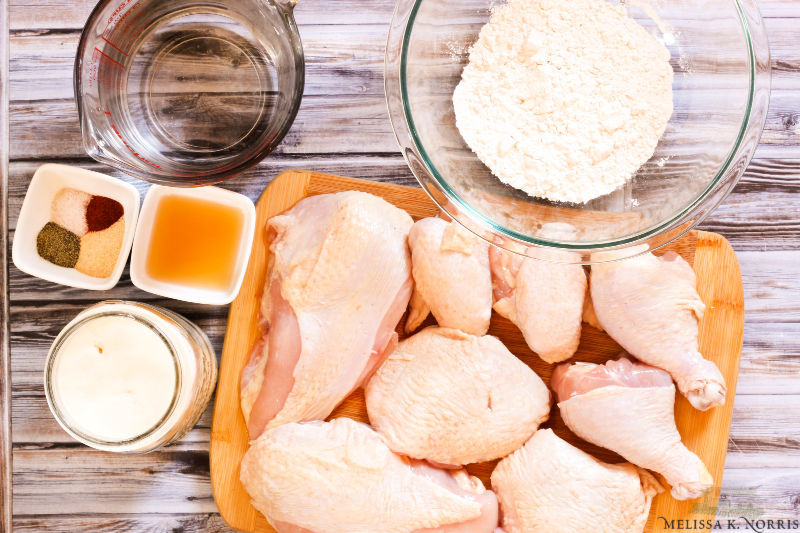
Can I Just Buy Organic?
Unfortunately, the organic certification does not protect you or give you the confidence to know that your meat hasn’t been given mRNA or any other vaccines.
The organic companies have taken a backseat to the vaccine conversation, and the certification process does not include whether or not an animal has been vaccinated.
The USDA says, “Since organic farmers can’t routinely use drugs to prevent diseases and parasites, they mostly use animal selection and management practices. Only a few drugs, such as vaccines, are allowed. If approved interventions fail, the animal must still be given all appropriate treatment(s).” (Source)
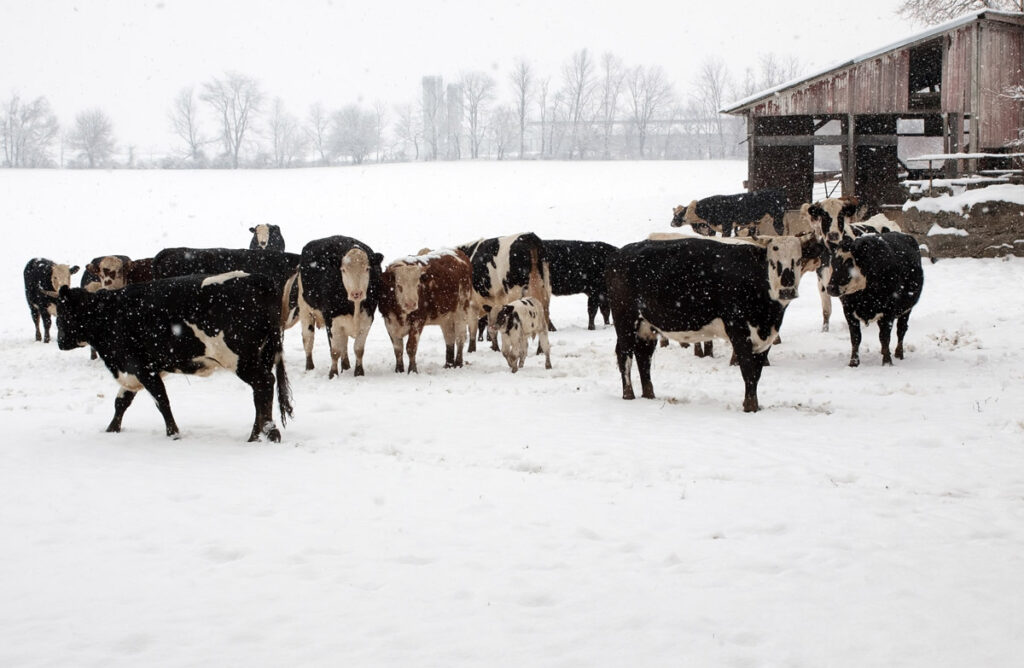
Do Vaccines Make Healthier Livestock?
There seems to be some pretty big pushback from people in favor of vaccines. If something makes your animals “healthier,” why wouldn’t you give it to them?
Sadly, with mass production of meat and CAFOs, the living conditions for livestock are horrible and diseases that weren’t an issue a hundred years ago are now a big issue.
I grew up with a father who raised cattle, and at the height of his operation, he had 130 head of cattle, and not one ever received a vaccine. They were a healthy herd being raised on grass, free-range.
Joel mentions his similar operation. He raises 1,000 head of cattle and can recall two times when he’s ever needed to use a vaccine. Because of his experience, he now knows anytime you need to use a vaccine it always comes down to mismanagement.
The two times Joel needed to vaccinate were due to mismanagement of his cattle herd where they were getting poked by blackberry bushes which allowed the introduction of the soilborne disease Blackleg.
The second instance was when he had to move a large flock of chickens out to pasture at a young age and they experienced a week of 40-degree rainy weather resulting in Merek’s disease.
Knowing how to properly manage your livestock is critical if you want to avoid using unnecessary vaccinations.
Am I Anti-Vaccine?
In short, no. Both Joel and I aren’t anti-vaccine. Vaccines do hold a purpose, and if it’s a matter of losing 1,000 head of cattle to blackleg or giving them a round of vaccines to help eliminate the disease, we’ll choose the vaccination.
Using vaccines as preventative measures isn’t either of our approaches. We raise our livestock in a way that manages their health, provides healthy living conditions, and gives the animals the opportunity to live a healthy life, free of needing vaccines.
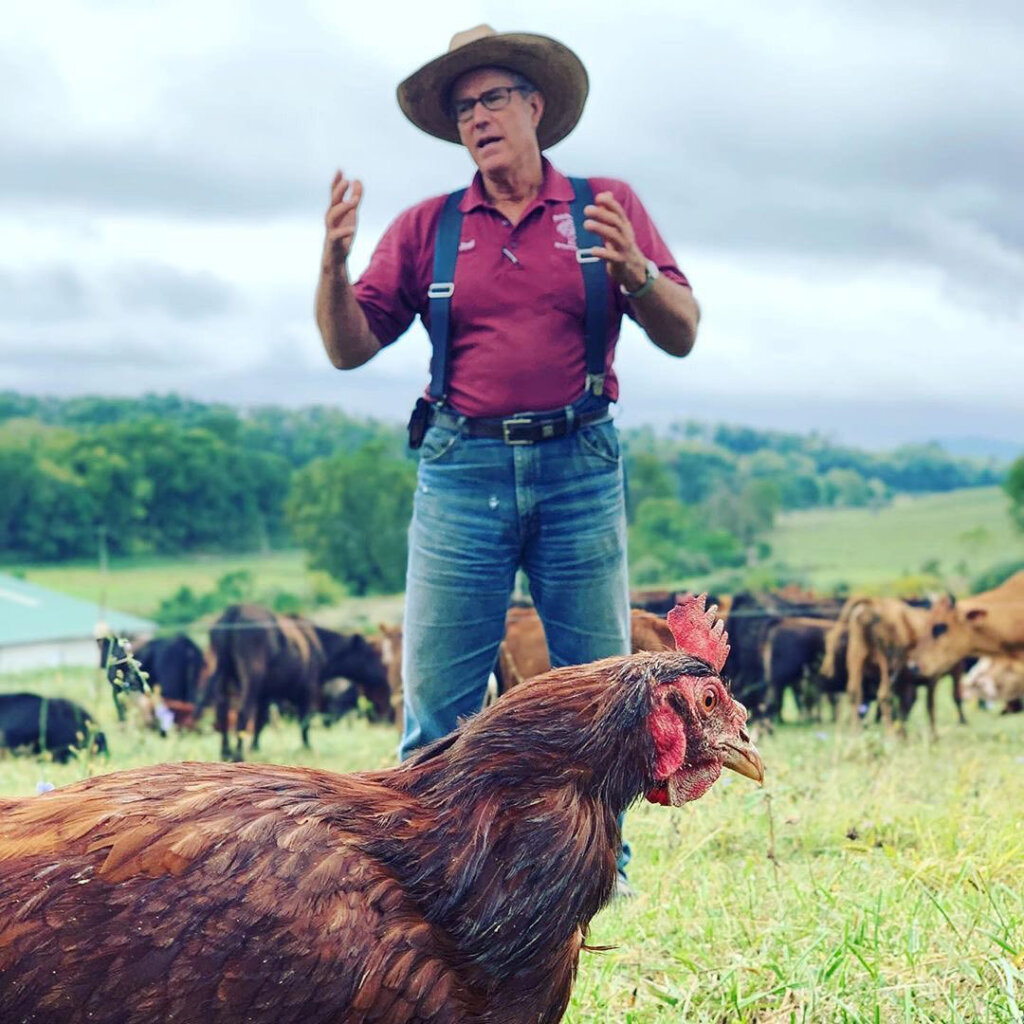
Know Your Farmer, Know Your Food
The only way to honestly know what you’re getting from your meat is to know your farmer, and know your food. Purchase from a small farmer that you can talk to, ask questions, and maybe even visit the farm.
Smaller-scale farms that are raising their animals “the old-fashioned way” in a habitat that’s actually healthy for the animals. Because of this, the farmers don’t need to introduce vaccines because they’re raising healthy livestock.
Want Beef From Us?
Want grass-fed, grass-finished beef raised right here on our homestead? We will have two 1/4 or one 1/2 beef available this September 2023.
Pick-up will be in Stanwood, Washington the end of September. To get on our waitlist to be notified when it’s for sale, sign up here!
And if you’re curious about the cuts of beef to get from the cow, or what you should know before butcher day, or the nutritional benefits of beef liver, check out those posts.
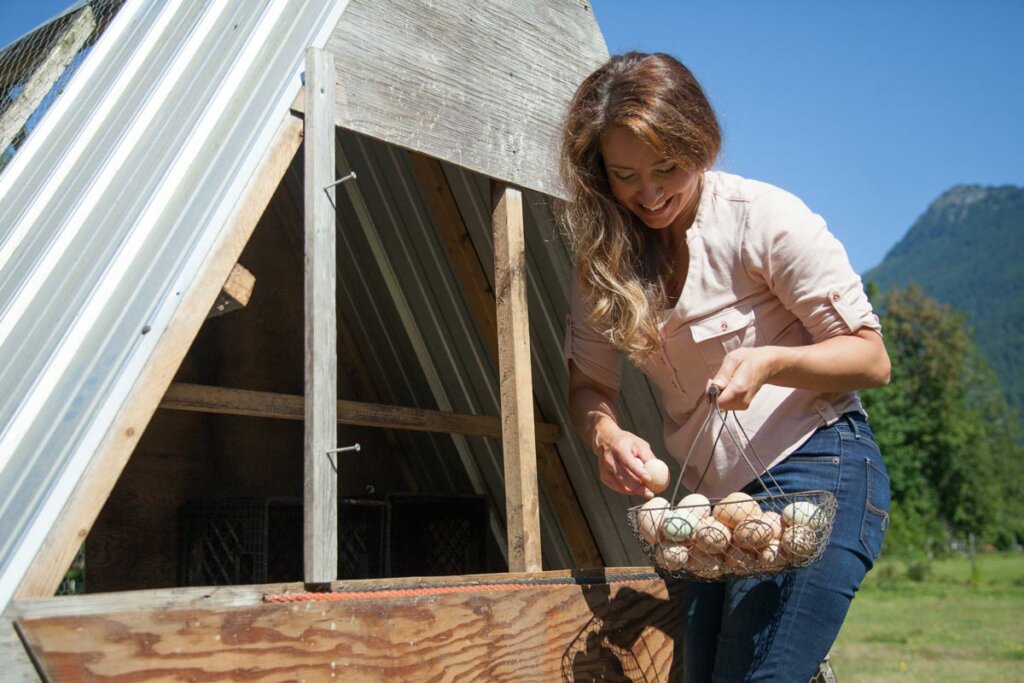
Be Encouraged & Take Action
Though there are some limitations depending on where you live, there are so many loopholes to raising your own livestock! Almost anyone in America can raise two cattle, five hogs, and 100 chickens, plus about 10-20 dozen eggs each week.
Joel says unless you’re a hermit, you’re circulating somewhere and can spread by word of mouth enough to sell this amount of livestock to earn a living for your homestead.
Here are two pieces of advice Joel wants to leave us with:
- Start viewing your outings as an opportunity to share what you’re doing! Everyone has to eat, and you may be surprised that there are more people out there willing to buy locally than going to the local Walmart that just aren’t speaking up. View yourself as allowing these people to break down the barriers of not relying on the grocery store.
- Don’t start all at once. When we think about the whole picture, it’s easy to get overwhelmed. For example, if you raised four hogs, one for yourself and three to sell, don’t put pressure on yourself to sell all three hogs. Break them into half a hog and see if you can find one person willing to buy that. From there, work on the second half. These smaller tasks will make it more feasible. The same goes for a cow. Instead of selling a whole cow, think of it in quarters.
Where to Find Joel
If you’d like to learn more from Joel, he’ll be speaking at the first annual Modern Homesteading Conference in North Idaho this June 30-July 1, 2023. You can grab tickets to the conference here.
You can also check out Joel on his website, Polyface Farm or @polyfacefarm on Instagram and Facebook.

More Posts You May Enjoy
- Tips for Eating Nose to Tail
- What is A2 Milk & What are the Benefits?
- How to Make Beef Liver Supplements
- What to do When Homesteading Gets Tough
- How to Buy a Homestead – What to Look For
- How to Get Everything Done in a Day Without Wasting Time or Getting Distracted
[fusebox_transcript]
